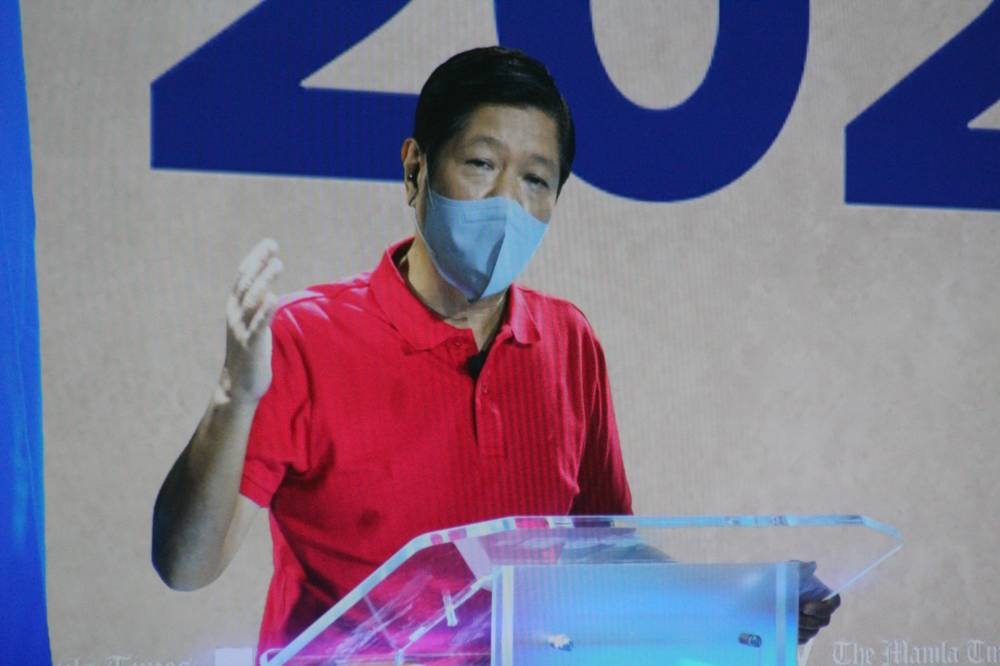Marcos rules out martial law
"So being involved in some kind of war or in some kind of confrontation, military confrontation would be highly counterproductive. So that is something that we would like to avoid as much as we can," he added.
Marcos said that martial law, which was imposed by his father when he was president, should be kept as an extreme option.
"Martial law is needed when you are at war. If we somehow find ourselves at war — and I sincerely pray and hope that it never happens — then you'll have to institute martial law," Marcos said, citing Ukraine's decision to declare martial law to defend its territory from Russia's invasion.
"Let us look at the situation going on right now between Russia and Ukraine. Once the enemy forces entered into the borders of Ukraine, they declared martial law. That's a necessity. But it only comes up when we are at war," he explained.
"That is why despite all the criticisms of martial law, it remains in the Constitution in the event that war is declared upon us or we are somehow embroiled in a war and we will need to institute martial law," Marcos added.
President Ferdinand Marcos Sr., Bongbong's father, placed the country under martial law in 1972 and lifted it in 1981.
Under Article 7, Section 18 of the Constitution, martial law may be declared in the Philippines or any part thereof in cases of an invasion or rebellion when public safety requires it.
The President shall submit a report in person or in writing to Congress within 48 hours from the proclamation of martial law or the suspension of the privilege of the writ of habeas corpus.
The Congress, voting jointly, may revoke such proclamation or suspension by a majority vote.








Nessun commento:
Posta un commento